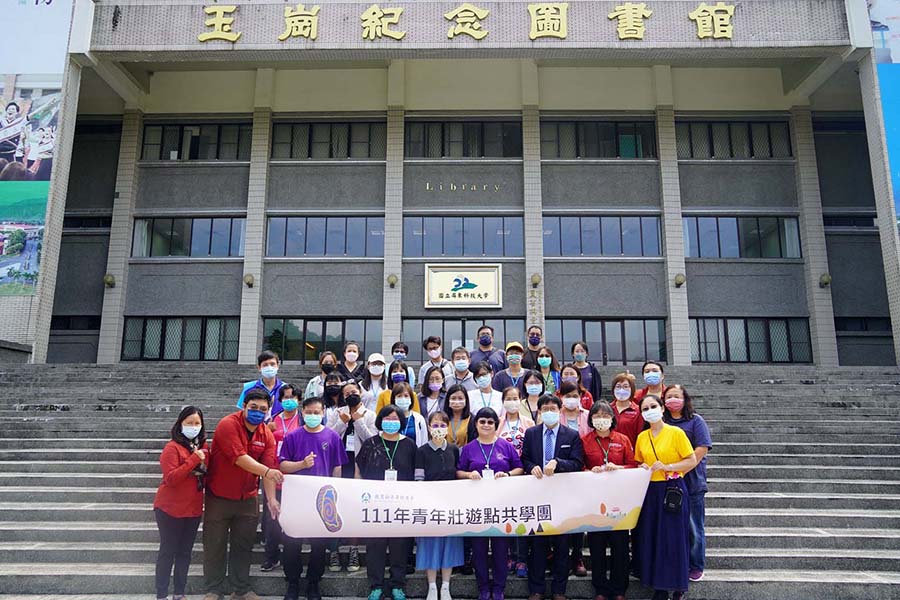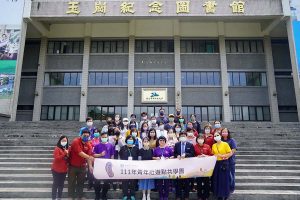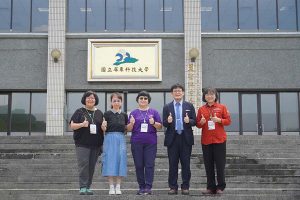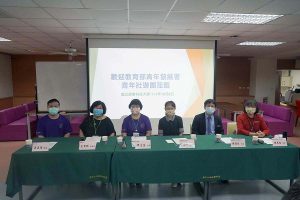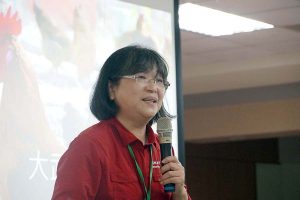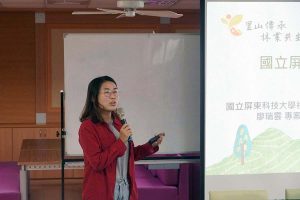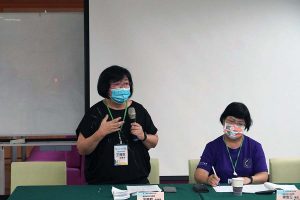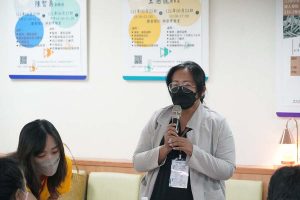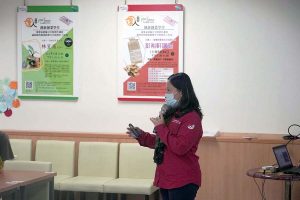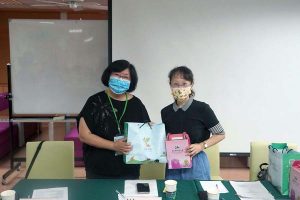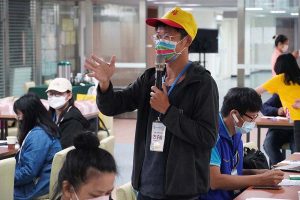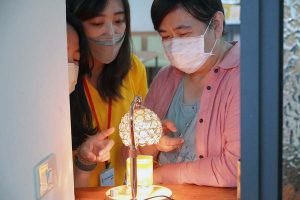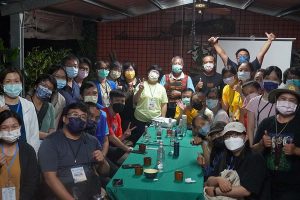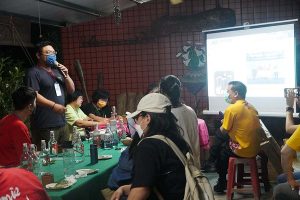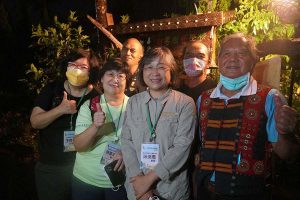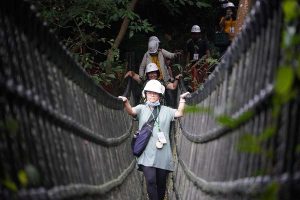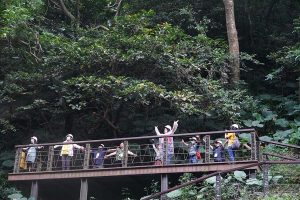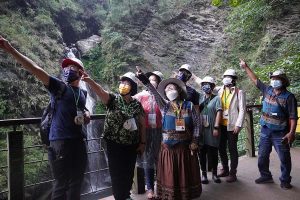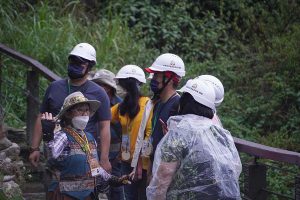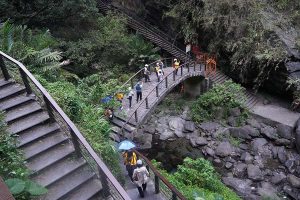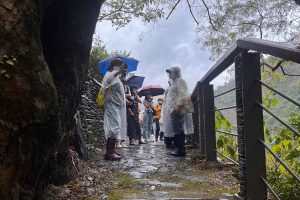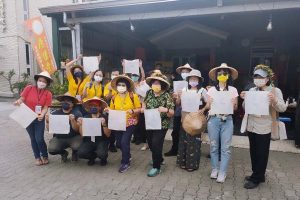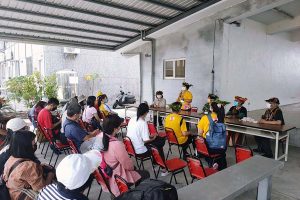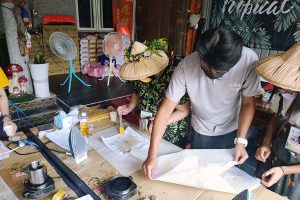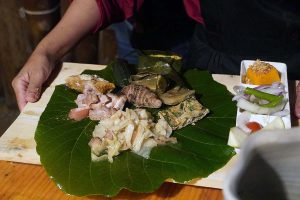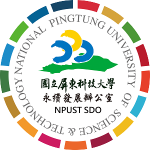Professor Meihui Chen of the NPUST Department of Forestry has been working together with the Youth Development Administration (YDA) to organize the 2022 Youth Tour-Location Study Group activity. On the October 7th and 8th, personnel from the YDA and 36 youth representatives from tourist locations in 22 counties and cities around Taiwan gathered at Lily Park in Changzhi and Shenshan Tribe Natural Humanistic Ecological Scenic Area to take part in an educational experience. On October 8th, discussions where held between Director Hsueh Yu Chen of the YDA, NPUST Secretary General Wen-Ling Shih, College of Agriculture dean Jue-Liang Hsu, Department of Forestry professor Mei-hui Chen and youth representatives of the tribal community, who convened at the NPUST Pin Ideas Lab share ideas related to the Satoyama initiative, eco-tourism, under forest economies, and the DMO concept. The NPUST Community Forestry Team’s intentions were to use the two-day activity to share three main points with the youth tourist location team representatives from around the country. The first focuses on the toughness and resilience demonstrated by the community in their efforts to rebuild following the Typhoon Morakot disaster in Wutai Township—and this generation’s cooperation on sustainable development issues. The second is the role that universities play in the mountain village preservation and revitalization based on the “Satoyama” model of eco-tourism, under-forest economies, and friendly agriculture. And the third is the importance of protecting the natural and cultural assets of indigenous villages, sustainably managing the eco-tourism industry, and sharing the experiences of the Indigenous Natural and Cultural Ecological Scenic Area in Wutai.
Following the devastations of Typhoon Morakot, Ali Tribe members living in the affected area relocated from their mountain village to a new permanent settlement on the nearby flatlands, but their affection for their historic home remained with them. The current activity was designed to connect both the new settlement and the Ali tribe’s native village through an ecological tour. At Lily Park in Changzhi, a small-scale farming tour was arranged by the Forest Originated Youth Team and the young tribe members. The tour included a “Grade Six Industry” under forest bee raising activity, and offered an opportunity to present the results of the gold-medal-winning ChangeMaker Youth Community Participation Action Project that the Forest Originated Youth Team conducted with the Ministry of Education between 2019 and 2021. Several young people from the Ali tribe carefully planned the experiential tours of the permanent settlement and small-scale farms, allowing the participants to enjoy the cool breeze as they strolled through a world of under forest beekeeping, tribal style hand-made beeswax cloth, tribal plum wine and cloud coffee. Since 2008, NPUST Forestry Department professor, Mei-hui Chen, has been working with these young people from the Ali Tribe, who, at the beginning were attending high school in the city. Now, they have returned to the tribal area and are serving their community in such capacities as president of Community Development Association, director of the Indigenous Village Management Team, and farming leader for under forest economies. And now the tribe members from their parent’s generation are by their sides offering support, in what can be said to be the perfect example of the Satoyama spirit of sharing from generation to generation.
Through the co-learning activities carefully organized by the two parties, young people from all over the country can visit and experience the beauty of the tribal mountain areas, and see the ways in which NPUST is practicing university social responsibility (USR). Expectations are that the tours will also help encourage new ways of thinking and inspire young people who are working hard in various places to continue moving forward.







